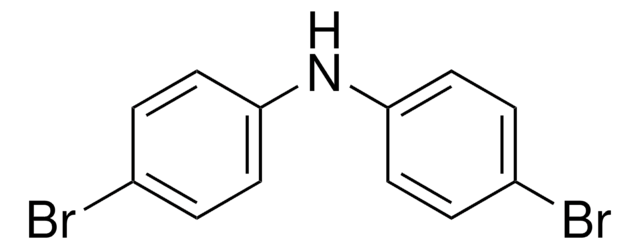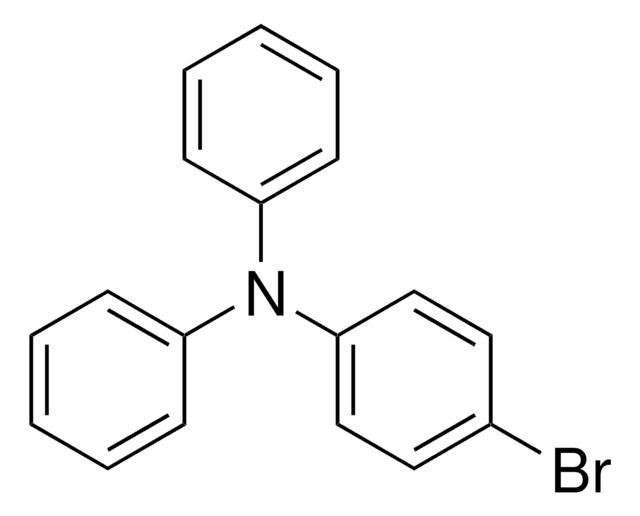767905
4,4′-Dimethoxydiphenylamine
99%
Synonyme(s) :
4-Biphenylamine,4,4′-dimethoxy-, 4-Methoxy-N-(4-methoxyphenyl)aniline, p,p′-Dimethoxydiphenylamine, Benzenamine,4-methoxy-N-(4-methoxypheny)-, Bis(4-methoxyphenyl)-amine, Bis(4-methoxyphenyl)amine, Bis(p-anisyl)amine, Bis(p-methoxyphenyl)amine, Di-p-anisylamine, Di-p-methoxyphenylamine, Termofleks A
About This Item
Produits recommandés
Niveau de qualité
Pureté
99%
Forme
powder
Pf
100-104 °C
Chaîne SMILES
COc1ccc(Nc2ccc(OC)cc2)cc1
InChI
1S/C14H15NO2/c1-16-13-7-3-11(4-8-13)15-12-5-9-14(17-2)10-6-12/h3-10,15H,1-2H3
Clé InChI
VCOONNWIINSFBA-UHFFFAOYSA-N
Catégories apparentées
Description générale
Application
Mention d'avertissement
Warning
Mentions de danger
Conseils de prudence
Classification des risques
Carc. 2 - Eye Irrit. 2 - Skin Irrit. 2 - STOT SE 3
Organes cibles
Respiratory system
Code de la classe de stockage
11 - Combustible Solids
Classe de danger pour l'eau (WGK)
WGK 3
Point d'éclair (°F)
Not applicable
Point d'éclair (°C)
Not applicable
Faites votre choix parmi les versions les plus récentes :
Déjà en possession de ce produit ?
Retrouvez la documentation relative aux produits que vous avez récemment achetés dans la Bibliothèque de documents.
Articles
Professor Chen (Nankai University, China) and his team explain the strategies behind their recent record-breaking organic solar cells, reaching a power conversion efficiency of 17.3%.
Notre équipe de scientifiques dispose d'une expérience dans tous les secteurs de la recherche, notamment en sciences de la vie, science des matériaux, synthèse chimique, chromatographie, analyse et dans de nombreux autres domaines..
Contacter notre Service technique




![[Pd(OAc)2]3 reagent grade, 98%](/deepweb/assets/sigmaaldrich/product/structures/508/249/99a0ef2c-b77c-4d73-8ed9-0cca05b6b41f/640/99a0ef2c-b77c-4d73-8ed9-0cca05b6b41f.png)





